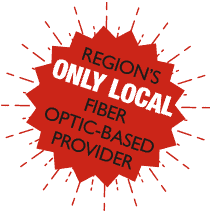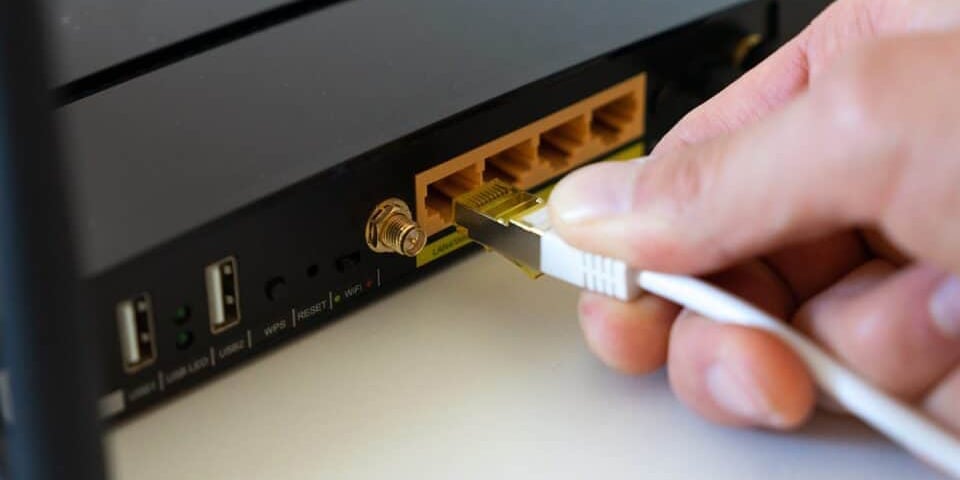Whether you have a hospital or an IT company, a router is an essential internet component for every business. This “digital bridge” enables you to connect the internet to all of your devices.
If you’ve done your research, you may notice a large collection of routers claiming fast speed and security.
However, when choosing a router for fiber optic internet for business there are several factors to consider, more than just which fiber optic router to purchase. This guide will help you choose the best router for fiber internet.
In this detailed guide, we will cover all things related to fiber optic routers and how to make your investment worthwhile.
First, we’ll cover exactly what a fiber optic internet router is and how it’s different from other routers.
What is a Fiber Optic Router?
As the name describes, a fiber optic router is a dedicated internet component designed for fiber optic internet that utilizes fiber optic cables to transmit the internet instead of CAT-5 and CAT-6 cables.
Unlike CAT-6 cable routers, fiber optic cables transmit light signals due to laser-transmitting glass threads. This technology allows your devices to access up to 10G+ fiber optic internet at 10 Gbps data speeds.
However, as you consider speed and reliability, it’s important to note that an ordinary cable or DSL router will degrade performance when paired with fiber optic technology.
That’s why we always recommend a fiber optic router to achieve the most reliable, technologically advanced, cost-effective, and feature-rich telecommunications network in Colorado and New Mexico.
Fiber optic routers feature a new-gen chipset and ethernet ports compatible with fiber optic technology. For instance, a 2.5GbE port will allow you to configure LAN and WAN networks for high-speed internet.
Does this really make a difference in business? You bet it does!
Data transport
No matter what industry your business is in, you are likely to send or receive a large volume of data between devices. Having high-speed fiber internet not only saves precious time, but is far more reliable and eliminates data transport failure.
When you pair your fiber internet modem with a fiber optic router, you achieve the true potential of your high-speed internet.
Additionally, maximizing the available high-speed internet ensures efficient use of cloud-based applications, video conferencing, telemedicine, and distance learning.
High stability
Along with network speed, internet stability also matters in business. Unexpected internet downtimes mean loss of productivity, profits, and decreased credibility among clientele. Unlike cable internet, fiber optic’s stability is not dependent upon the weather.
Streamlined security
Another benefit of fiber optic internet and a fiber optic router is network security. Fiber optic cables transmit data at the speed of light and are almost impossible to hack.
While a fiber internet connection protects your data from external threats, a fiber optic router ensures a secure connection inside the organization.
IoT solutions
A fiber router in combination with fiber optic internet enables high-speed internet so that you can efficiently use IoTs in your business. This is especially true with VoIP.
From HD calling, and video conferencing, to call management, your business will run smoothly from top to bottom with reliable high-speed internet.
Modem vs. Router: What’s the Difference?
Frequently the terms ‘modem’ and ‘router’ are used interchangeably. However, there are some distinct differences.
| Factors of Comparison | Modem | Router |
|---|---|---|
| What is it? | A modem is a bridge between your internet service provider (ISP) and your business premises. It exchanges digital signals and enables an internet connection inside your business. | A router is a middleman that connects with the router and transmits the internet to the connected devices. It works with data links and the network layers of your Open Systems Interconnection. |
| Functionality | It comes with a ‘Mo’ and ‘Dem’ approach. The primary functionality of a modem is to modulate the signal received from ISP and demodulate it to the router. In this process, the modem converts digital signals to analog signals and enables the internet. | The router interacts directly with the fiber modem using an ethernet cable and enables the internet to communicate with the nodes in the network. In technical terms, it follows a dedicated routing table to route data packets from a node to the destination. |
| Connection with ISP | Your modem is the device that directly connects with your ISP servers for internet access. If you want to access the internet in your business, the modem is an essential component. | Unlike a modem, the router is a network device that doesn’t connect with an ISP but is essential for internet access to the devices. It means you can even use the internet without a router. |
| Connected devices | The purpose of a modem is to receive and convert digital signals. So, you can connect it with only one device, whether it’s your server PC or router. | As a network device, routers can enable the internet in devices such as laptops, PCs, mobiles, and tablets. A device can access the internet through ethernet or Wi-Fi. |
| Security | The modem does not play any role in network security. Choose fiber optic internet for the best security. | Routers work with network security standards such as WEP, WPA, and WPA2. It performs a security check for each packet and allows you to set passwords for better security. |
Best Router for Fiber Internet
Below are just a few fiber optic routers available on the market at the time of this writing. For best results, we recommend consulting your ISP before purchasing.
Netgear Nighthawk X4S
Netgear Nighthawk X4S is a feature-rich fiber optic router with Wi-Fi 6. Thanks to Wi-Fi 6 technology, this router can offer improved bandwidth to any device that supports 160MHz frequency. You can enjoy up to 2.53Gbps Wi-Fi speeds and original internet speed using ethernet.
Furthermore, the router features Multi-User MIMO technology to stream the internet to multiple devices without any loss of bandwidth.
Asus RT-AX88U
Asus RT-AX88U is among the most powerful fiber routers based on 802.11ax Wi-Fi technology. It may surprise you that this router can stream up to 6Gbps Wi-Fi speeds. Additionally, there are eight LAN ports and four antennas designed for consistent performance.
Ideal for businesses, Asus has installed AiProtection Pro as commercial-grade cybersecurity. That’s why some consider it the best router for fiber internet.
Synology RT2600AC
Synology is famous for its innovative and secure devices worldwide. The RT2600AC router is no exception! If you have a small business, you will appreciate its security components, such as firewall management and intrusion prevention.
Synology RT2600AC also comes with a “virtual office” feature that enables you to set up remote workplaces. This allows your at-home employees to access the company’s system and secure files.
Netgear Orbi Pro AC3000
Netgear Orbi Pro AC3000 is the only fiber optic mesh system on the list. It’s a tri-band fiber optic router designed to transmit internet up to 5000 sq. ft. It means you can enable high-speed internet in the entire workplace and boost your operations.
Also, AC3000 has Mu-MIMO technology so that your employees can access consistent internet regardless of the number of users.
Linksys EA6350
Finally, we have Linksys EA6350 as the most economical fiber optic internet router on the list. It’s another tri-band router that comes with Mu-MIMO technology.
Thanks to its four ethernet ports, this router establishes seamless connectivity and enables your employees to achieve up to 1.9Gbps Wi-Fi speeds.
In addition, you get access to Linksys Smart Wi-Fi software for connectivity and customizations.
Why Would You Choose a Fiber Router?
Despite all the above, some still may wonder, “Why spend more on a fiber router when a more cost-effective router can serve the purpose?”
Fiber compatibility
If you have fiber internet, cable routers don’t have the ‘fiber optic port’ required to connect fiber optic cable. Ideally, you’ll want a fiber optic router that is designed to handle high-speed internet that fiber optic internet is known for delivering.
Another aspect of compatibility is the chipset used in cable routers does not work with fiber internet.
Better bandwidth
A network with a fiber router features fiber optic cables to connect nodes to the internet. When compared to CAT-6 cables, fiber optic cables are more efficient and can move data at the speed of light. This means you can transmit the internet at up to 10Gbps and achieve the desired results.
This means you’re getting your money’s worth when you pair it with a service provider that offers up to 10G+ internet with 99.99% uptime.
Next-gen connectivity options
In addition to internet speeds, fiber routers can also boost data transfers with their latest ports and connectivity options. A USB 3.0 that offers a transfer speed of up to 5Gbps, is actually ten times faster than a USB 2.0.
Similarly, the Wi-Fi 6E can deliver a Wi-Fi speed of up to 6Gbps at a frequency of 160MHz.
Summary
It’s clear that a fiber internet needs a fiber optic router to perform as expected. But it all starts with high-speed fiber optic internet! Therefore, FastTrack Communications has invested in an extensive fiber optic network of over 450 miles in the region.
FastTrack is the only locally-based fiber provider with its headquarters in Durango, CO. We are also the only regionally-based provider in Farmington, NM.
Being a fiber optic internet provider in Durango, we understand the internet needs of local businesses and offer up to 10G+ internet at an affordable price.
Consult an expert today at 877-755-0558 and get a quote for your business or visit us at https://fasttrackcomm.net/fasttrack-service-request/


